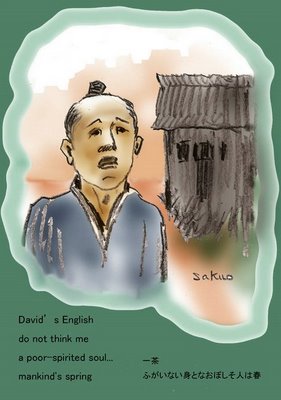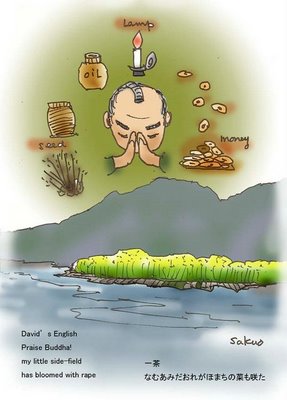 David’s English
David’s English
do not think me
a poor-spirited soul...
mankind's spring
一茶ふがいない身となおぼしそ人は春
fugainai mi to na oboshiso hito wa haru
1813, Age 51Second Month, he is living in Kashiwabara in a rented house. In autumn, his inheritance dispute finally settled, he moves into his family home.
sakuo Renku
五十過ぎても我が家持てず
gozyuu sugite mo waga ie mote zu
even over fifty
couldn’t have my houseDavid’s comment
Issa seems to imply that, unlike other people, he isn't celebrating spring with all of the proper, expected rituals. )儀式, If this is so, the third phrase, hito wa haru ("mankind's spring"), is ironic. Shinji Ogawa helped my translation by untangling Issa's syntax: na oboshi so = "do not think"; hito wa haru = "spring is the prime season for man, or man is in his prime in spring."
visit
http://cat.xula.edu/issa/ 
 David’s English
David’s English















